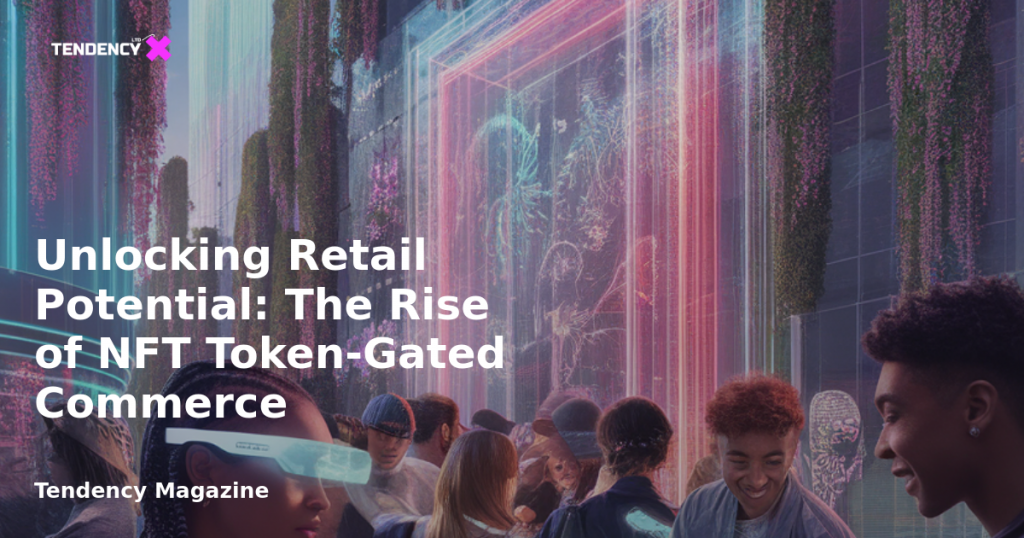Unlocking Retail Potential: The Rise of NFT Token-Gated Commerce

Table of Contents
- Understanding Non-Fungible Tokens (NFTs)
- The Concept of Token-Gated Commerce
- Implementing Token-Gated Commerce on Shopify
- Advantages of Token Gating
- Challenges and Risks of Token Gating
- Practical Use Cases for Retailers
- Case Studies and Lessons Learned
- The Future of Token Gating in Retail
- Token Gating FAQ
Understanding Non-Fungible Tokens (NFTs)
A non-fungible token (NFT) is a unique digital identifier stored on a blockchain, certifying ownership of an asset. Unlike fungible assets such as dollars or Bitcoin, each NFT carries distinct data, making it one-of-a-kind. NFTs can represent a wide range of items, including digital content like images and music, virtual items such as avatars and in-game assets, physical goods with digital proof like sneakers or tickets, and access rights to exclusive communities or events. They reside on decentralized networks like Ethereum, Polygon, and Solana, where each transfer is recorded and verified, making them valuable for authentication and commerce applications.
The Concept of Token-Gated Commerce
Token-gated commerce utilizes NFTs as digital access keys. When a customer connects their crypto wallet to a store, a smart contract verifies the presence of the required token. If verified, the storefront automatically unlocks hidden items, prices, or events. This process is similar to joining an email list or applying a discount code, but with the added security of blockchain verification, eliminating the need for storing passwords or personal data.
Implementing Token-Gated Commerce on Shopify
Shopify‘s token gating app partners allow retailers to offer NFT-based access to collections, products, discounts, collaborative launches, and community engagement. Customers connect their cryptocurrency wallets to the Shopify store, and once ownership of a specific NFT is verified, they unlock access to gated products or perks. Supported cryptocurrency wallets include Metamask for Ethereum/Polygon, Phantom for Solana, Kukai for Tezos, and Dapper for Flow. As with all blockchain transactions, customers must confirm each transaction before processing.
Advantages of Token Gating
Token gating offers numerous benefits for retailers:
- Security: NFT ownership is verified through the blockchain, preventing forgery and ensuring only token holders access perks.
- Cost-effectiveness: Brands can sell access or perks directly to customers, bypassing third-party platforms and retaining more revenue.
- Marketing impact: Token gating can drive word-of-mouth marketing, with early data showing higher customer engagement and lower acquisition costs.
Challenges and Risks of Token Gating
While token-gated commerce presents new opportunities, it also introduces risks and compliance challenges:
- Phishing attacks: Scammers often imitate wallet popups or airdrop links to trick users into malicious transactions.
- Legal and tax considerations: Regulations vary by region, affecting how sales, gifts, and promotions are taxed or regulated.
- Environmental footprint: Concerns persist about the environmental impact of blockchains, though some, like Ethereum, have reduced energy consumption significantly.
Practical Use Cases for Retailers
Token-gated commerce is already being applied in various ways:
- Limited-edition product drops: Token gating enforces scarcity, restricting access to verified holders only.
- Tokenized loyalty and membership programs: NFTs serve as perpetual membership cards, granting access to perks without needing codes or credentials.
- Experiential marketing: Retailers use token gating to bridge online and offline experiences, offering VIP access at events and store activations.
Case Studies and Lessons Learned
Several brands have successfully implemented token gating:
- Adidas ALTS community: By integrating wallet authentication, Adidas sustained multi-year community engagement with dynamic access tokens.
- Nike .SWOOSH: Despite technical issues, Nike’s platform attracted significant interest, demonstrating the importance of robust infrastructure.
- Starbucks Odyssey: Complexity hindered adoption, highlighting the need for simple, friction-free token programs.
The Future of Token Gating in Retail
While the future of token gating in retail remains uncertain, its security features, cost-savings potential, and marketing impact make it a valuable tool for businesses today. As eCommerce continues to evolve, token gating is an area to watch.
Token Gating FAQ
- What does token gating mean? Token gating restricts access to a product, community, or website until ownership of a specific NFT is verified.
- How does token gating work? It operates on the blockchain, allowing NFT holders to access exclusive products, experiences, and more.
- How do you create a token-gated community? Use available tools to build a community requiring a specific NFT token for access, ensuring the community offers valuable experiences.
In conclusion, token-gated commerce represents a pioneering approach to retail, offering innovative ways to engage customers and build brand loyalty. As the landscape of digital commerce continues to shift, exploring the potential of NFTs and token gating could unlock significant opportunities for growth and differentiation.
2025 Tendency LTD. All rights reserved.

